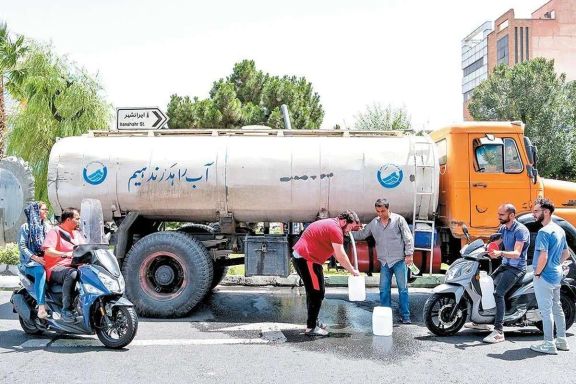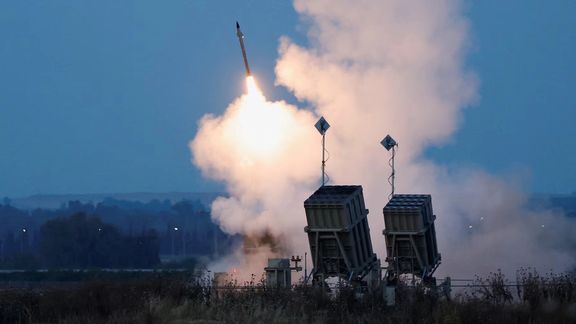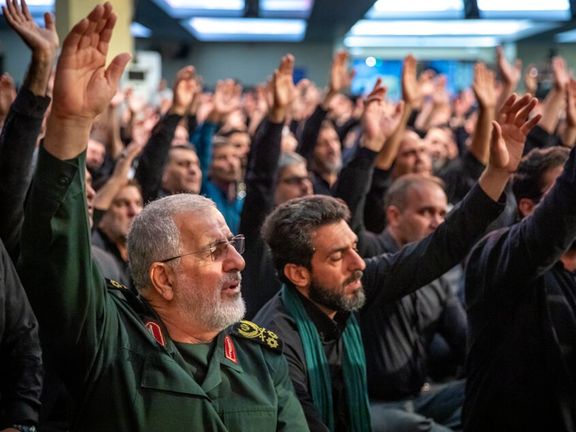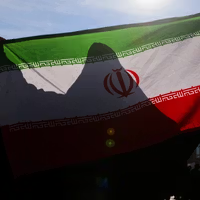It’s a task Ali Khamenei once handled directly — intervening to rein in factions and reassert unity — but his low profile in recent weeks has left a vacuum.
Not long before this “visible invisibility,” Khamenei publicly warned against the perils of political loose talk.
“Our shortcomings, our tongue wagging, our pointless bickering, our lack of patience, our incorrect analysis of the situation, sometimes change the course of history,” he said on April 24.
At the time, the remarks were read as a reprimand to officials for lax security and for letting their rivalries spill into the open, weakening Tehran’s hand in dealings with adversaries, above all Israel and the United States.
Now, those same dynamics are on display again, but it’s the IRGC playing nanny, sweeping up the shards of political infighting while Khamenei focuses elsewhere.
The clerical establishment is trying to thread an impossible needle: secure sanctions relief, or at least stave off a European “snapback” of UN sanctions, through diplomacy, while rebuilding its triple deterrence— missile and drone stockpiles, its proxy network, and uranium enrichment program.
Fracas One: ‘golden calf’
On August 5, Saeed Jalili, a Khamenei representative to the Supreme National Security Council and a prominent hardliner, lashed out at advocates of renewed talks with Washington, calling them “golden calf worshippers”—a scriptural reference denoting impatience and betrayal.
Jalili, who lost to Masoud Pezeshkian in the 2024 presidential race, has long opposed engagement with the West. But this time his remarks drew fire not just from reformists, but also from the hardest core of Iran’s power: the IRGC.
The IRGC-linked daily Javan warned that airing strategic disputes in public was “harmful,” while the Guards-affiliated Tasnim news agency cautioned against “radicalism.”
Only Raja News, tied to the sidelined family of late president Ebrahim Raisi, backed Jalili — a move likely aimed at clawing back influence.
Under sustained pressure, Jalili retreated on August 12, posting on X that failing to negotiate when opportunities arise would “cause losses,” citing Khamenei’s April endorsement of Oman-mediated nuclear talks with the U.S.
Fracas Two: no way but to talk
From the other side of the political spectrum, President Pezeshkian triggered the next flare-up on August 10.
“You reject engaging in talks. What’s your alternative? Do you want to fight? Fine, [the adversaries will] strike again. Then you have to repair the damage… These are not issues to be approached emotionally,” he told critics.
Reformist outlets hailed his “realism” and “honesty,” while hardline media accused him of advocating “surrender.” Again, the IRGC intervened.
Aziz Ghazanfari, a senior political chief, praised Pezeshkian’s “honesty and purity,” but warned that “not everything should be said in public” and urged him to stick to pre-approved, scripted comments.
Whether the IRGC can keep senior politicians’ “tongue wagging” in check—and prevent Khamenei’s carefully balanced machinations from unravelling—may determine whether Tehran’s strategy holds or fractures again.















